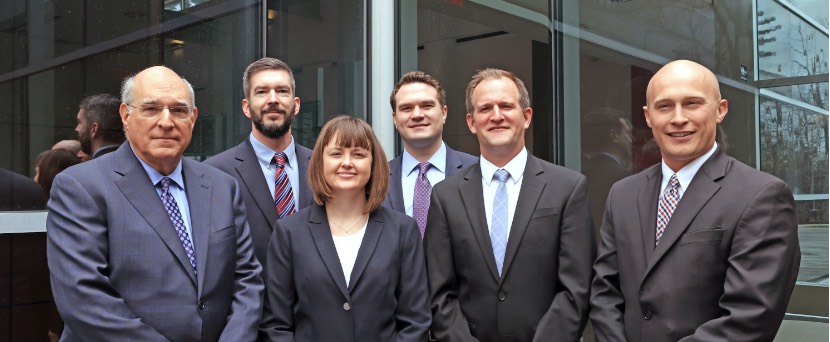October 25, 2020
Illinois Workers Comp and Covid-19
ILLINOIS WORK COMP UPDATE CONCERNING CORONAVIRUS (COVID-19) Effective April 13, 202 …
WASHINGTON — Parents of military veterans who took their own lives after surviving combat told a congressional panel on Thursday how not to prevent suicide:
n Turn away a veteran of some 400 combat missions in Iraq because he’s no longer active in the National Guard.
n Then turn him away because he was previously in the Guard and refer him to a military facility where he’s promptly referred back to the VA.
n Now tell him to wait for a postcard with his appointment time.
* Either don’t send that postcard, or send it to the wrong address.
n Refuse to refer him outside the Veterans Affairs health-care system.
n When he finally does get his first VA date with a psychiatrist, have that doctor inform him that he’s retiring and won’t be able to see him a second time. Emphasize that he will, however, be seen by another doctor — just as soon as one becomes available.
n Never do get back in touch, and let him run up considerable debt getting what help he can in the private sector.
n And, finally, watch that veteran sprawled on the floor, crying in the corner of a VA hospital where he’s gone while having flashbacks and begging to be admitted. Refuse to see him yet again, but assure him he’s free to stick around until he feels well enough to drive himself home.
After all that, Daniel Somers committed suicide last summer, his parents tearfully testified before the House Committee on Veterans’ Affairs on Thursday. Their son was 23.
Sitting close together, Harold and Jean Somers took turns reading their statement, peering through almost matching wire-rimmed glasses. A few times, he finished her sentence when she started to cry. Once, she did the same for him.
While they spoke, members of the committee could not have been more attentive. One said she’d been close to tears herself; a couple told the grieving parents that their testimony had been hard to hear. Rep. Phil Roe, R-Tenn., a doctor who served in Vietnam, called their words “heartwarming.’’
He must have meant heartbreaking, because there was nothing fuzzy about it.
In 2011, their son wrote about the crushing guilt he felt over having been “called upon to employ deadly force on a regular basis — often in situations where non-combatants ended up in the crossfire. To this day, I am unable to provide even a rough approximation as to the number of civilian deaths in which I may be complicit.”
In his final months, Somers suffered from post-traumatic stress so severe he wore a towel around his head that he said helped keep out the voices, the light and the sound.
Clay Hunt, a Marine who fought in both Iraq and Afghanistan, took his own life in 2011. His parents, Richard and Susan Selke, added more to the “what not to do” list.
n Tell someone who has at last found an antidepressant that works well that he has to change drugs because there’s no generic available.
* Once that hurdle is cleared, tell him the VA pharmacy doesn’t stock that drug, but it will be mailed to him in seven to 10 days. Ignore all medical advice against stoppping anti-depressants cold.
* Now tell him the scrip can’t be refilled because it was written in Colorado rather than Houston, where he’s just moved — and thus he must start all over in the system, and wait to be re-evaluated.
* Classify him as only entitled to 30 percent disability pay even though he is so compromised by the symptoms of his post-traumatic stress that he isn’t able to work.
* Lose his paperwork altogether for 18 months, and then five weeks after his death, finally review his appeal and conclude that he should be on full disability. Notify his survivors of the good news.
Brian Portwine’s mom, Peggy, said he should have gotten an automatic mental health evaluation after a fellow soldier he’d just switched seats with in their Humvee in Iraq was blown to bits. That didn’t happen, though.
Back home, he had such poor short-term memory that he’d frequently ask his friends, “Where are we going again?” Yet despite suffering from post-traumatic stress disorder, anxiety, depression and a traumatic brain injury, he was deployed yet again, and killed himself in May of 2011.
“I’m begging this committee” to do something, Portwine said, in keeping with what “I promised my son at his funeral.’’
She has kept that promise, as have all the parents and loved ones who’ve been turned into advocates by the rolling tragedy of the 22 veterans a day who committed suicide in 2010, up from 18 per day in 2007, according to the latest figures from VA. They definitely had the full focus of the riveted and respectful House committee.
Its chair, Rep. Jeff Miller, R-Fla., introduced a bill Thursday called the Clay Hunt Suicide Prevention for American Veterans Act, which would require the National Guard and VA to work together. Sen. John Walsh, D-Mont., a retired Army colonel and Iraq veteran, has proposed similar legislation to financially reward psychiatrists who stay in the VA system. It’s unclear what they could offer doctors to stay on in a place that would leave a man who fought for us, and then couldn’t forgive himself, crying on the floor?
In this case, it’s obvious that Congress is willing to act, but how? Surely, more access to and information about private care is one answer. But on days like this one, spent watching the grief of those who survived soldiers we effectively left on the battlefield, the VA itself seems beyond saving.
– See more at: http://www.register-news.com/opinion/x1927856562/Parents-VA-failed-their-children#sthash.R9iqMdVE.dpuf
